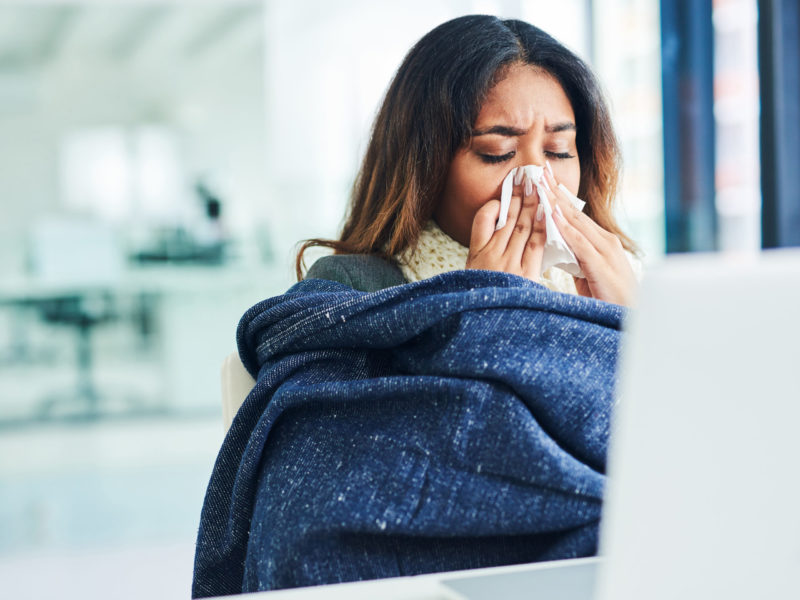Respiratory illness season is on its way, and Sanford Health doctors are urging patients to get vaccinated.
With influenza and RSV (respiratory syncytial virus) typically starting in the fall and peaking from December to February, now is the time to get those preventive shots. There also is a new monovalent COVID-19 vaccine for the 2023-24 season.
Get your shots: Make an appointment
“The flu vaccine is among the safest and most widely used medical products,” said Susan Hoover, M.D., an infectious disease specialist at Sanford Health in Sioux Falls, South Dakota. “Vaccination can help prevent you from getting influenza, help you be less ill, or prevent hospitalization due to the flu. The time to get a flu shot is now, and you can get it on the same day as an updated COVID-19 vaccine.”
Annual flu vaccine
Patients vaccinated against flu in the Southern Hemisphere, where the flu season is winding down, lowered their chances for severe influenza illness, the Centers for Disease Control and Prevention reported.
In addition to vaccination, the CDC urges everyone to take other measures to protect against flu and its potentially severe complications, including avoiding close contact with people who are ill.
Who it’s for:
The CDC recommends flu vaccinations for everyone 6 months and older, especially those at higher risk of complications including pregnant people, older adults and young children.
New COVID vaccine
An updated COVID-19 vaccine is available for ages 6 months and older.
Sanford Health is now administering the new monovalent COVID-19 vaccine labeled the “2023-2024 COVID-19 vaccine,” which targets the omicron variant XBB.1.5. This vaccine replaces the most recent bivalent COVID vaccine that came out in 2022.
While new COVID-19 strains circulate, the 2023-2024 COVID-19 vaccine is expected to provide cross-protection this respiratory illness season.
Who it’s for:
The CDC recommends everyone 6 months and older receive the updated COVID-19 vaccine if it’s been at least two months since their most recent dose.
First RSV immunization
For the first time, RSV immunizations are available for certain groups.
Who it’s for: Adults 60 and older
A single dose of RSV vaccine will be given to adults ages 60 and older. Vaccination is recommended for individuals who have a weakened immune system from illnesses or medications, chronic conditions like heart or lung disease, or live in a nursing home.
Pregnant women
A single dose of RSV vaccine is recommended for pregnant women between 32 and 36 weeks of pregnancy right before or during RSV season to help protect babies for the first six months of their lives.
Infants and young children
A new antibody treatment is recommended for infants younger than 8 months old who are born during or entering their first RSV season. Except in rare circumstances, most infants younger than 8 months of age do not need the RSV immunization if they were born 14 or more days after their mother got the RSV vaccine.
Infants and children 8-19 months old who are at increased risk for severe RSV disease and entering their second RSV season should also receive a dose.
Right now, a nationwide shortage of one brand of this antibody treatment has led the CDC to advise two groups to get it first:
- Newborn babies
- Infants at high risk for severe RSV
The goal is to immunize all infants for RSV, and a similar RSV immunization is available. Talk to your child’s provider about the benefits of both options and which one may be right for your child.
How to get vaccinated
Find a clinic near you or make an appointment:
Learn more
- Is it a cold or RSV? Know when to call your child’s doctor
- Preparation through vaccination key to staying flu-free
- New COVID-19 vaccine available at Sanford Health
…
Posted In COVID-19, Flu, Healthy Living, Immunizations
